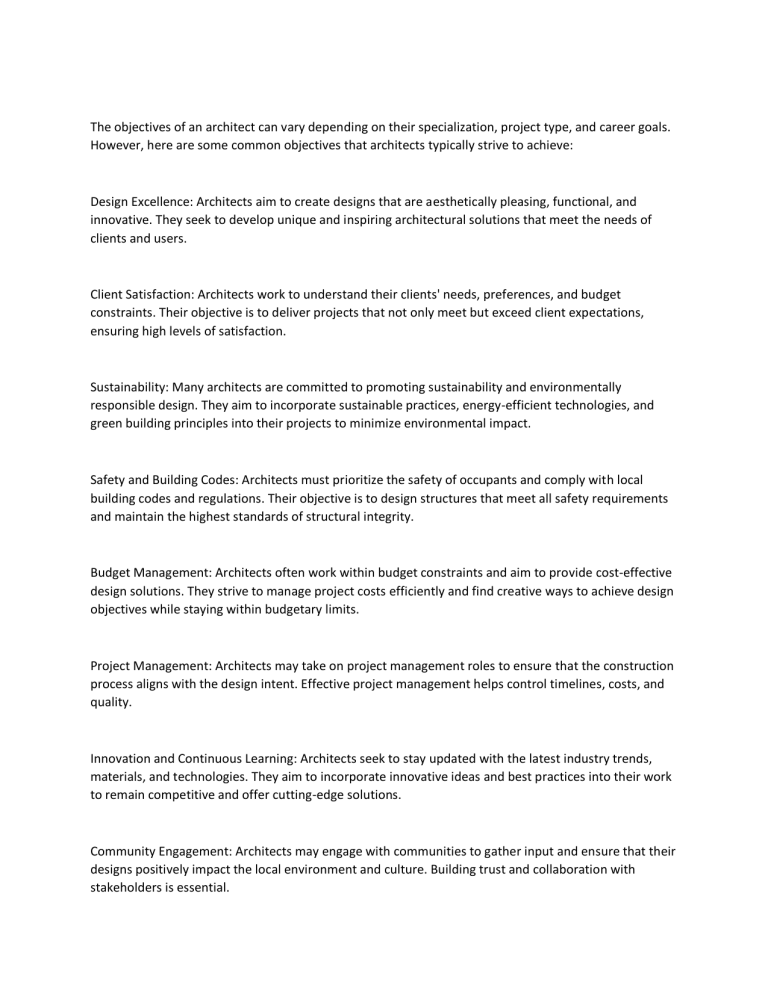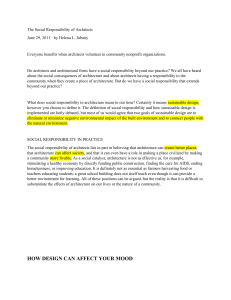Uploaded by
Architect Carnaje Design and Architecture
Architect Objectives: Design, Sustainability, and Ethics
advertisement

The objectives of an architect can vary depending on their specialization, project type, and career goals. However, here are some common objectives that architects typically strive to achieve: Design Excellence: Architects aim to create designs that are aesthetically pleasing, functional, and innovative. They seek to develop unique and inspiring architectural solutions that meet the needs of clients and users. Client Satisfaction: Architects work to understand their clients' needs, preferences, and budget constraints. Their objective is to deliver projects that not only meet but exceed client expectations, ensuring high levels of satisfaction. Sustainability: Many architects are committed to promoting sustainability and environmentally responsible design. They aim to incorporate sustainable practices, energy-efficient technologies, and green building principles into their projects to minimize environmental impact. Safety and Building Codes: Architects must prioritize the safety of occupants and comply with local building codes and regulations. Their objective is to design structures that meet all safety requirements and maintain the highest standards of structural integrity. Budget Management: Architects often work within budget constraints and aim to provide cost-effective design solutions. They strive to manage project costs efficiently and find creative ways to achieve design objectives while staying within budgetary limits. Project Management: Architects may take on project management roles to ensure that the construction process aligns with the design intent. Effective project management helps control timelines, costs, and quality. Innovation and Continuous Learning: Architects seek to stay updated with the latest industry trends, materials, and technologies. They aim to incorporate innovative ideas and best practices into their work to remain competitive and offer cutting-edge solutions. Community Engagement: Architects may engage with communities to gather input and ensure that their designs positively impact the local environment and culture. Building trust and collaboration with stakeholders is essential. Professional Development: Architects often pursue professional certifications and continuing education to enhance their skills and knowledge. Their objective is to maintain high professional standards and stay licensed in their respective jurisdictions. Ethical Conduct: Architects adhere to a code of ethics that emphasizes integrity, honesty, and responsible practice. They aim to uphold these principles in all aspects of their work. Portfolio Development: Architects may aim to build a diverse and impressive portfolio of projects that showcase their design expertise and capabilities. A strong portfolio can lead to new opportunities and clients. Long-Term Impact: Some architects focus on creating designs that have a lasting impact on the built environment and contribute positively to society and culture. These objectives may evolve over an architect's career and may vary depending on their specific role within the profession, such as being a residential architect, commercial





